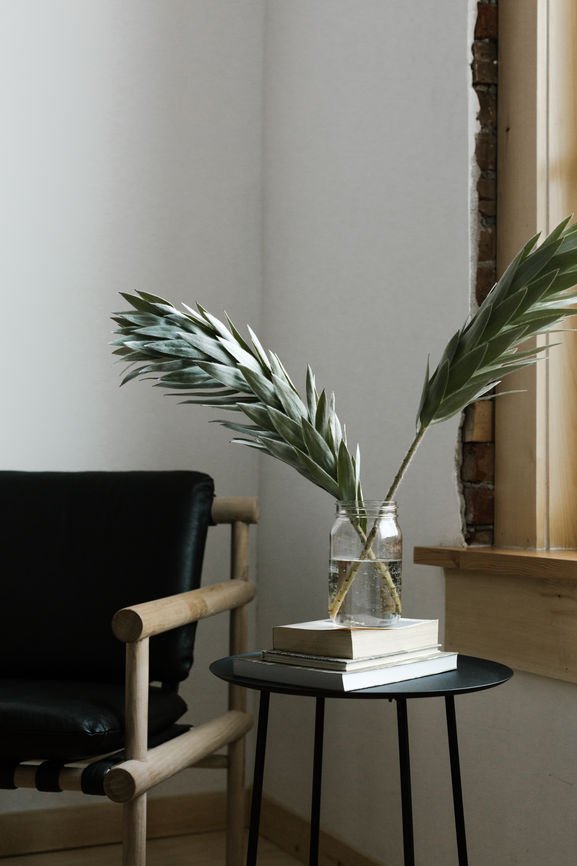
Should You Be Keeping A Sleep Log?
How Do You Sleep At Night?
In the United States alone, around one in three people claim to sleep less than seven hours a night. The old saying goes, I’ll sleep when I’m dead. But the truth is, our lack of sleep is harming our physical health, alongside our mental and emotional wellbeing.
According to the Center for Disease Control and Prevention, people who sleep less than seven hours a night are at higher risk for health issues, including strokes, mental distress, and heart disease. Skipping zzz’s is not only harmful to our body but also impairs our cognitive function. And forgoing sleep to get more work done is actually counterproductive. You operate best when entirely rested.
So we just need to get enough sleep? It sounds like a simple fix, right? Go to bed on time; turn our phones off; rest for eight to nine hours. Done. Unfortunately, it’s not so easy.
Even when following a schedule and routine, our bodies are unpredictable creatures. Diet, stress, exercise, sickness, physical injuries—these all impact the quality of our slumber. Throw in external sounds (partying neighbors, street traffic outside your window) and, despite going to bed for the healthy amount of hours, you still wake up unrested. This begs the question: can we ever expect regular, quality sleep?
Thankfully the answer is yes. And it starts with keeping a sleep log.
Why Sleep Logs?
“Through conscious observation, record, and analysis, we can make changes and adjustments to improve our the quality of our slumber and, in turn, our overall wellbeing.”
There’s been a lot of buzz about sleep logs and trackers in the past few years, the target audience being people who not only want more sleep, but better sleep. Many of our readers have also been curious about sleep diaries, asking us whether or not they improve the quality of slumber and if they are backed by science. This is because, despite crawling under the covers at the same time every evening, there are many of us (myself included) who fall victim to common sleep issues: tossing and turning, restless leg syndrome, snoring partners, crying babies, overall light sleep—just to name a few.
Achieving an excellent night’s rest is possible though, and that’s where a sleep log can be beneficial. While logging our rest may not fix our sleeping problems, it does make us more aware, helping us to pinpoint and fix the issues. Through conscious observation, record, and analysis, we can make changes and adjustments to improve our the quality of our slumber and, in turn, our overall wellbeing.
Creating a Tailored Sleeping Log
Your sleep log can be as simple or as in-depth as you’d like, what’s most important is that it works well for you. I use a small journal, and I write six columns on each page: date; time I went to bed; time it took me to fall asleep; time I woke up; sleep quality (1-10 scale); notes. The notes column is where I make my observations, notes like, “I drank sleepy tea thirty minutes before bed & I noticed I fell asleep faster,” or “I had a glass of wine with dinner & woke up twice throughout the night.” (My observation here would be to avoid drinking alcohol too close to bedtime and incorporate tea into my evening routine.
If you’re someone who rarely gets a good night’s rest, you may even want to include tailored columns to help pinpoint specific habits impacting your sleep. Things like evening diet, room temperature, last activity before bed, and even the pajamas you wore. The more detailed your journal, the more information you’ll have to work with when making future adjustments.
Benefits of Keeping a Sleep Log
Empowerment through Self-Awareness & Problem Solving
Keeping a sleeping log is empowering. It requires us to observe our bodies (by way of sleep patterns) and identify potential rest deterrents. I’m waking up around two every morning to use the bathroom. For the next week, maybe I’ll try fasting beverages after eight p.m. We are the ones who strategize and then make purposeful changes. Through trial and error, our sleep logs help us to create a space and routine specific to our bodies’ needs.
“Through trial and error, our sleep logs help us to create a space and routine specific to our bodies’ needs.”
You might be thinking: don’t electronic apps and smart trackers do all this leg work for us? Yes! They do. And there are many incredible tech devices for sleep logging on the market; I’ll mention a few below. But there is something unique about handwriting sleep patterns in a journal. Instead of viewing data collected by bots and sensors each morning, we get to be our own data collectors instead. This is an empowering thing—observing our bodies and making adjustments based on our own findings. It’s even more empowering once we implement a change and notice a difference.
Intentionality and Engagement
Another benefit of keeping a sleep log is that it requires intentionality and engagement. I keep my sleep log next to my gratitude journal on the nightstand. Both have become as much a part of my morning routine as washing my face or making coffee. Where before I would have reached for my phone, eyes still groggy and consciousness not fully there, my hand now touches paper and pen. This change alone—connecting with purposeful and grounding objects rather than my phone—has improved my waking experience.
“Keeping a sleeping log is an invitation to listen to our bodies, to be mindful and aware of our sleeping patterns.”
Moreover, keeping a sleeping log is an invitation to listen to our bodies, to be mindful and aware of our sleeping patterns. A handwritten log is especially useful for this kind of engagement. In the morning, we learn to check in with ourselves, observing how we feel, and whether or not we are rested. This is an empowering and embodying experience.
Smart Sleep Logs & Trackers
If keeping a handwritten journal is not your thing, there are numerous smart apps to monitor your slumber these days. Here are a few that have caught our attention:
1. Contactless Sleep Sensor
ResMed’s S+ Seep Sensor is the world’s first non-contact monitor. It measures your movements and breathing through a nature-inspired bedside device. Operating similarly to the echolocation system—how bats hunt insects at night—it delivers tailored feedback from experts to improve your sleeping environment and overall quality of rest.
2. Smart Mattress
We haven’t been able to find a smart mattress that is also organic and/or eco-friendly, but The Jupiter+ by Eight Sleep seems to be the favorite among smart home fans. It tracks your sleep, has temperature control, and even a Smart Alarm.
3. Smart Phone App
If you’re not ready to invest in a sleep tracker or mattress but prefer electronic logging over a paper and pen, Sleep Cycle is a smartphone app that uses sound analysis to monitor your sleep states and movements. It works with both iPhone and Android.
Even if you don’t use the app, the website is worth spending a few minutes on. With science-based articles about topics like circadian rhythm, snoring, and naps, as well as encouraging advice for people suffering from common sleep disorders, it’s a well of knowledge and inspiration. We especially love the live statistics showing the populations getting the best and worst sleep all over the world.
RELATED READING
Kayti Christian, a staff writer for The Good Trade, is a storyteller, creator, activist, and avid traveler hailing from Colorado, now living in London. With 30+ stamps in her passport, she is passionate about responsible tourism and is always looking for new ways to be a more conscious traveler. She is currently pursuing her MA in Creative Nonfiction Writing at City, University of London.

